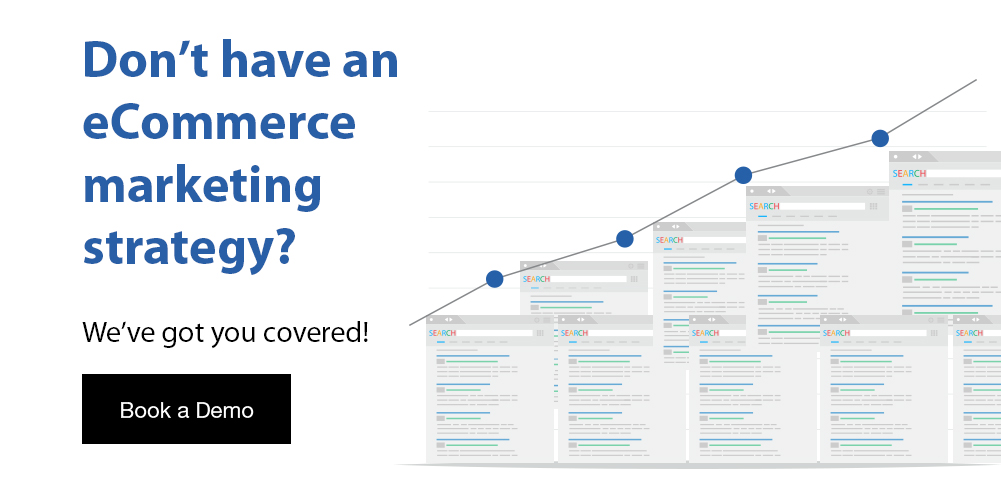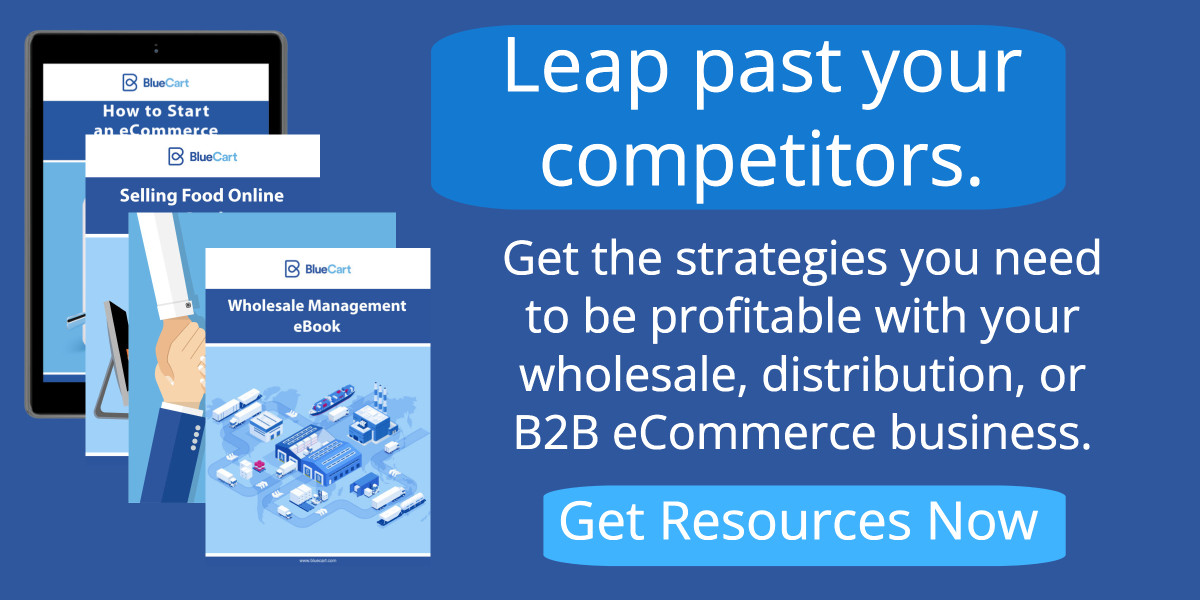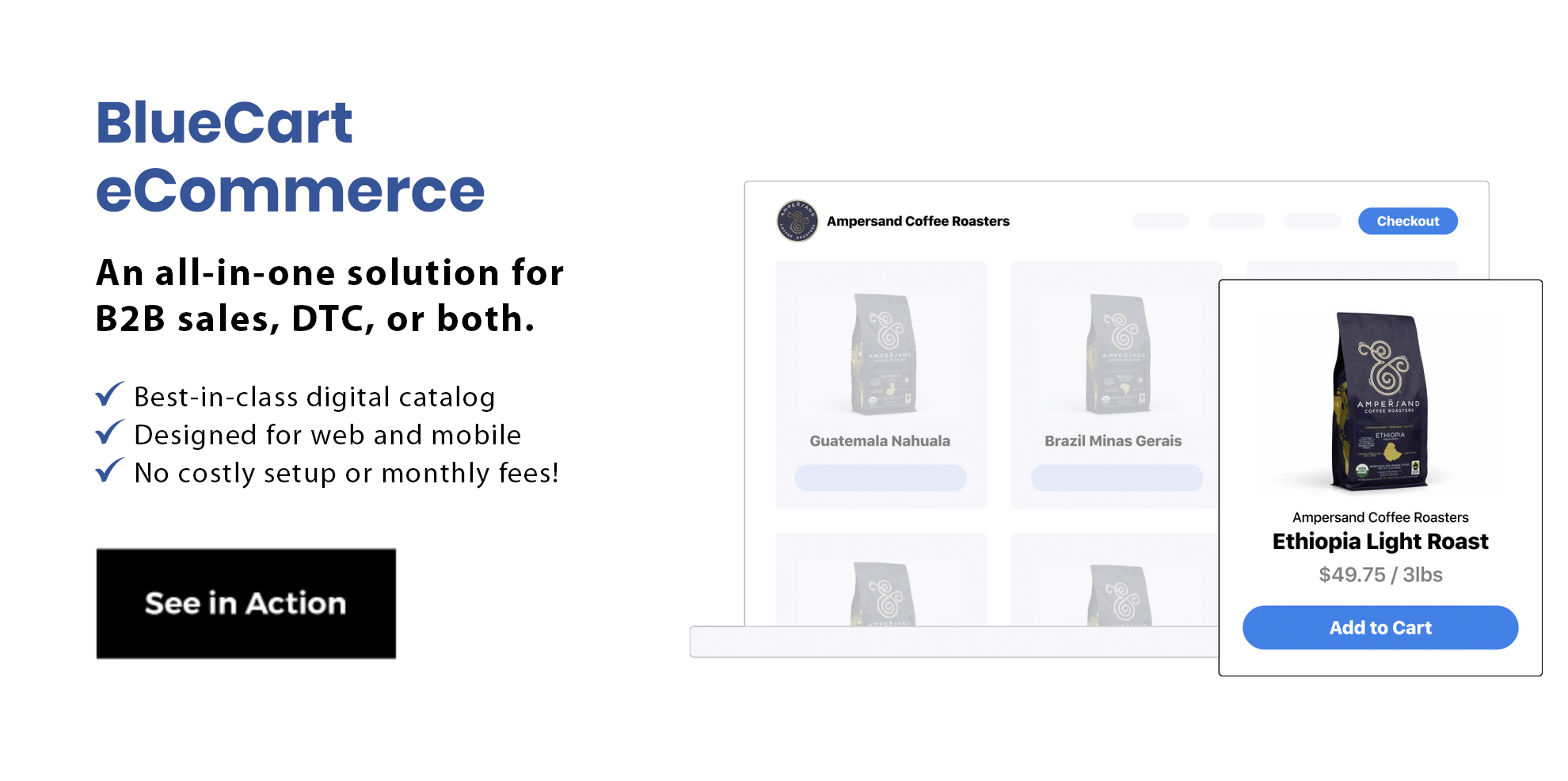We’re going to show you some statistics. Some very compelling statistics about the benefits of eCommerce SEO and eCommerce marketing.
They’re going to prove to you that eCommerce SEO is not just important, but required for when you're starting an eCommerce business to succeed.
This is the first article in a series that not only spells out the benefits of eCommerce SEO, but how to implement SEO for eCommerce sites.
So sit back and enjoy the ride. You’re on your way to a very discoverable future.

eCommerce SEO Terms
But first, let’s get some basic terminology out of the way.
- SERP: The Search Engine Results Page. This is the page you see after you submit a search to a search engine, complete with clickable links, ads, maps, the whole nine yards.
- SEO campaign: A planned, long-term effort for optimizing a website or collection of web pages to increase they’re SEO rankings.
- Ranking signal: Any factor that a search engine uses to decide where a website should rank in the search results.
- Organic search results: The links you see on the search engine results page because of their quality and relevance to the term you searched for.
- Paid search results: The links you see on the search engine results page that companies pay to show you. These appear at the top of the page, before the organic search results, and are branded with the word “Ad.” They only appear as long as the advertiser continues to pay for the position.
- CTR: Your CTR, or click-through rate, is the percentage of searchers who see your link in the Google search results and actually click on it.
- Crawling: When a search engine reads a page on a website by scanning its content and links.
- Indexing: When a search engine files your page into its database, making it accessible to users of the search engine.
- Off-page SEO: External factors and actions taken outside of your own website to improve search rankings on the SERP. For example, someone in your industry linking to your website.
- On-page SEO: Optimizing the content and structure of an individual web page to improve search rankings on the SERP. Using an eCommerce platform or online marketplace that is optimized for search out of the box can make on-page and SEO content for eCommerce easy.
- Technical SEO: Any adjustments to your website meant primarily to help Google crawl and index your site more effectively. Technical SEO for eCommerce sites is a big part of experience the full benefits of eCommerce SEO.
- Link building: Any action aimed at increasing the number and quality of external websites that link to your website. This is one of the more important off-page SEO for eCommerce efforts companies engage in. Internal linking can help with site visibility.
- Keyword research: The practice of researching terms and phrases that users (your prospective customers) enter into search engines. eCommerce keyword research can be crucial for site visibility.
- Site Audit: An eCommerce SEO audit can evaluate your website and determine how it's performing from an SEO standpoint.

What Is eCommerce SEO?
eCommerce SEO, or eCommerce Search Engine Optimization, is the process of increasing the quantity and quality of eCommerce website traffic that comes from search engines. This can be essential for a digital catalog, online store, and website.
And when we say quality, we mean how likely a visitor to your website is to take action. You may get a lot of traffic, but if that traffic isn’t transacting, it’s not high-quality.
We’ll be using Google as an example in this series, since almost 90% of global searches are Google searches.
To increase the quantity and quality of websites traffic means showing up higher in Google’s search results. And Google determines the order of search results using over 200 factors, or ranking signals.
The most substantial of those ranking signals are:
- Content relevancy and quality
- Page speed
- Website age and authority
- Publishing frequency
- User experience metrics (bounce rate, time on page, etc.) These are eCommerce metrics.
- Mobile friendliness
- Logical website and content structure
SEO, then, is the act of trying to enhance ranking signals for a particular website or web page. This is especially important if you're in a very competitive field like running a subscription website. eCommerce content marketing is a crucial factor of SEO.
Benefits of eCommerce SEO: Higher CTR
Here’s a chart, courtesy of Advanced Web Ranking, that shows the click-through rate (CTR) of search results by SERP position:

Web pages that achieve the #1 result see a CTR of over 30%. Web pages below the 6th result get a negligible amount of clicks.
And if you’re on the 2nd page, you may as well not exist.
The ultimate goal of SEO (restaurant SEO included), then, is to rank #1 for a term. But, as we’ve seen, sometimes that’s not realistic. Sometimes it’s enough of a victory to get somewhere on the first page.
In our case, it’ll mostly be SEO for eCommerce product pages.
Now, on to the stats.

Benefits of eCommerce SEO: Statistics
- A whopping 93% of all online experiences begin with a search engine (Search Engine Journal)
- 81% of online shoppers do research online before making a purchase (Millimetric)
- U.S. consumers spent roughly $710 billion on eCommerce in 2020 (eMarketer)
- According to a recent study, 65% of total eCommerce sessions came from search traffic (Statista)
- 70 to 80% of search engine users ignore paid ads (SMA Marketing)
- Organic traffic can provide up to 40% of your company’s revenue (BrightEdge)
What does this tell us?
That there’s an almost inconceivable amount of money being spent online for O2O and B2B marketing. That it’s primarily found through search engines. And that the organic search results get the majority of the clicks.
Optimizing your direct to consumer or B2B eCommerce website to show up in search results organically, to be one of those results that drives all these sales, is eCommerce SEO. eCommerce personalization can also be helpful for eCommerce growth.
What Happens When You Ignore SEO for eCommerce Sites?
Well, you get none of the benefits of eCommerce SEO.
Quite simply, you’ll be voluntarily putting yourself at a massive disadvantage compared to your competitors. Unless you have the largest and most prolific sales team on earth, you won’t ever come close to replacing what SEO can do for an eCommerce company.
That’s why it’s worth researching the best eCommerce platform for SEO. so you make wholesale sales or DTC sales and DTC marketing. You can also perform an Mobile-friendliness to find out how your competition is doing.
There are many different facets to eCommerce SEO, and this guide is going to walk you through them all.
Up next: On-page SEO for eCommerce.

Frequently Asked Questions About SEO In eCommerce
eCommerce SEO isn’t necessarily different from SEO overall, but it’s good to understand how it's used. There are SEO books that you can read to better understand all aspects of SEO. To make it easier, we combined some frequently asked questions and our answers below:
Why is SEO important for eCommerce?
SEO is important for eCommerce for several reasons:
- Increasing brand discoverability. When used well, SEO can net you short-term and long-term traffic. Regular blog publishing, updating on-page content, and building links are foundational for new shoppers to find you on a daily basis.
- Boosting product page performance. Most businesses sell more than one product, but only 20% of a company’s goods are responsible for profitability. By fleshing out product page SEO, you can boost already popular goods to an even bigger audience.
- Building authority. The more high quality content you have that is well-structured, the better rankings Google will give your site. The more often customers see your site on the first page of Google, the more authoritative you become in their minds. This prompts them to check out your store and buy from you more often.
Is SEO worth it 2021?
Yes, SEO is absolutely worth it in 2021 and beyond. In a marketing landscape where advertising, influencer marketing, and social media can all be too expensive for startups, SEO has numerous advantages.
One, SEO content itself can be done for free. As long as you research and write effectively, building traffic doesn’t require a financial investment outside of your website.
Two, outside of social media profiles, companies with strong SEO still experience the most new users and customers. Once you have a few dozen well-optimized blog posts on your site, you can expect continual traffic to those pages.
Three, SEO is still the best way to increase your site’s authority, trustworthiness, and expertise. People search online for information and answers to their questions. By offering digestible, useful, and informative content, users will trust your brand and Google will reward your site with better rankings.
How long will SEO last?
In implementing SEO, it takes about three to six months to see noticeable results. As far as how long SEO will be used, SEO has ongoing relevance for however long search engine results pages exist.
SEO provides dividends when your content is substantive, your links are properly structured, and you’re targeting relevant keywords. It takes some time to create blog posts that meet all of these requirements, but once they’re in place, you’ll start seeing traffic roll in.
Since search engine algorithms are always being updated, there’s always a need for SEO professionals to adapt content to it. Search engines are only expanding, which means SEO remains an essential marketing strategy into the foreseeable future.